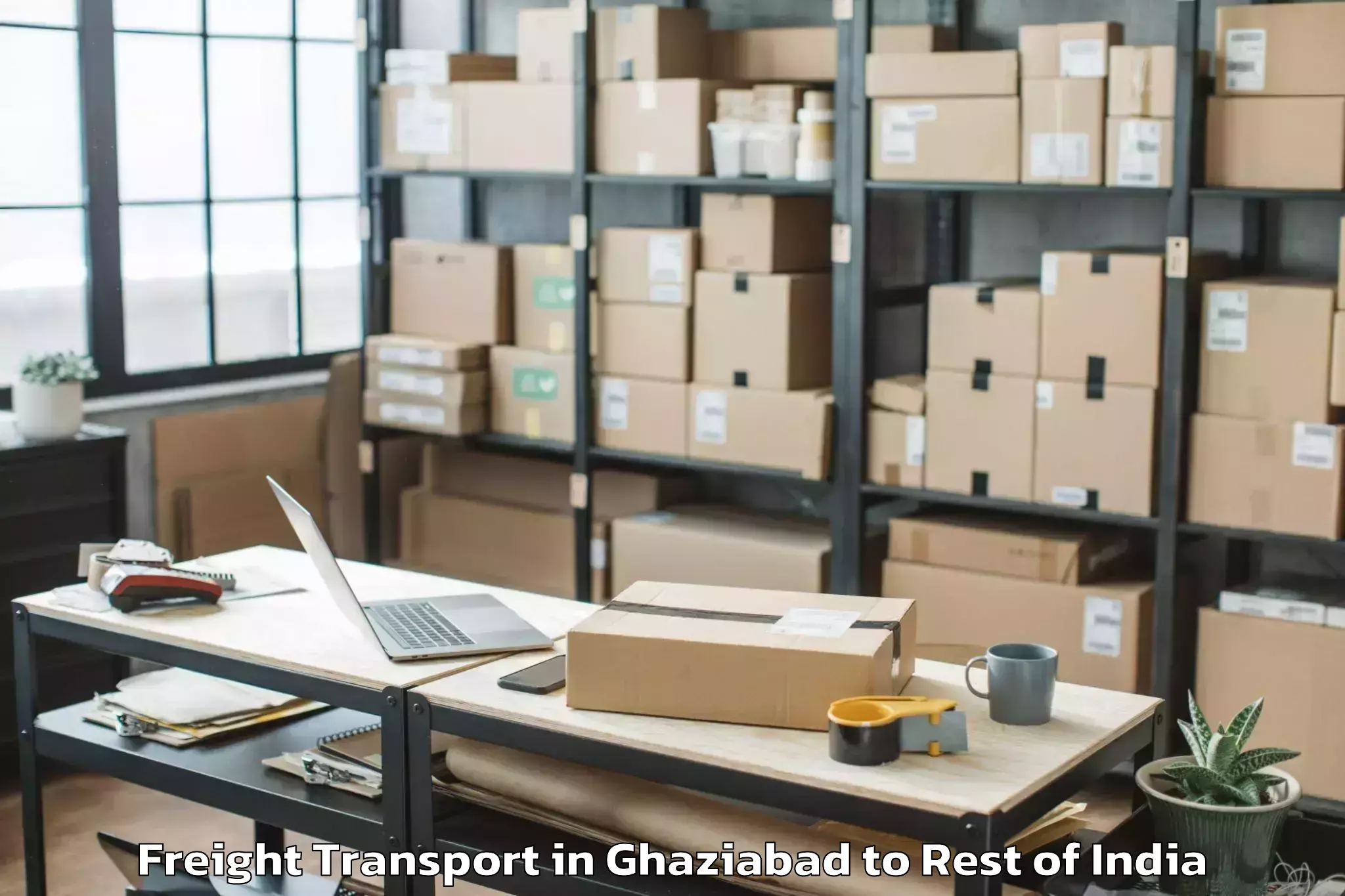Professional Ghaziabad to Patara Freight Transport

Unmatched transport services in India: Where reliability meets efficiency! Book the best services without any hassle from Ghaziabad To Patara, over a call. You can book various services like Express Delivery, Part Load Transport, Trucking, Household Courier, Door-to-Door Cargo, etc
Ghaziabad To Patara Freight Transport Service Details
| Mode of Transport: | Road, Rail & Air |
| Other Cities: | Freight Transport in Ludhiana to Patara and Freight Transport in Asansol to Patara |
| Source City: | Ghaziabad |
| Billing Weight: | As per weight, size, invoice value and pin codes. |
| Source State: | Uttar Pradesh - UP |
| Destination State: | Rest of India |
| Source Geo Coordinates: | 28.6691565, 77.4537578 - (NorthEast L: 28.7969614, 77.5562668, SouthWest L: 28.6023449, 77.2337899) |
| Destination City: | Patara |
| Delivery Type: | Door Delivery |
| Date: | April 29, 2024 (29-4-2024) |
| Area/Zone: | Meerut Division |
| Consolidation: | In Sharing with Other Shipment |
| Charges: | From ₹926 for Direct Pincode & ₹1926 for ODA Pincode |
| Nearby Cities: | Ghaziabad Freight Transport for Ramdas and Nihal Singh Wala Freight Transport in Ghaziabad |
| Services: | Professional shipping logistics, Customized truckload shipping, Nationwide goods logistics, Commercial goods forwarding, City-to-city transport operations, Professional goods forwarding, Fast package logistics, Personalized goods services, Cross-state courier services, Personal goods forwarding |
| Current Status: | Serviceable |
National Goods Shipment Solutions: Efficient and Reliable Transportation Services in India
In today's fast-paced world, efficient and reliable transportation services play a crucial role in the smooth movement of goods across regions. National goods shipment solutions cater to the increasing demands of businesses by providing seamless logistics support within India. Whether it is transporting raw materials for manufacturing or delivering finished products to customers, these services ensure timely and secure delivery. With a strong network of vehicles, dedicated personnel, and advanced tracking systems, national goods shipment solutions offer end-to-end supply chain management that meets industry standards. Emphasizing safety measures and cost-effective operations will further enhance customer satisfaction while addressing their diverse requirements.
Retail Distribution Logistics: Efficient Goods Transport for Indian Retailers
Retail distribution logistics refers to the process of transporting goods from manufacturers or suppliers to retailers in the retail industry. It plays a crucial role in ensuring that products are delivered promptly and efficiently, meeting consumer demands. In India, an emerging market with a vast retail sector, effective distribution logistics is vital for maintaining seamless supply chains and customer satisfaction. With the rapid growth of e-commerce and brick-and-mortar stores across India, retail distribution logistics has become increasingly complex. It encompasses various activities such as inventory management, order processing, warehousing, transportation planning, and last-mile delivery. These processes require careful coordination between different stakeholders involved in the supply chain. To optimize retail distribution logistics in India's diverse geography and infrastructure challenges, companies often leverage technological solutions like route optimization software and real-time tracking systems. Additionally, outsourcing fulfillment services to experienced third-party logistics providers (3PLs) can help retailers focus on core business activities while benefiting from their expertise in efficient transport operations. Efficient retail distribution logistics not only ensures timely replenishment of store shelves but also contributes to cost savings by reducing carrying costs associated with excess inventory or stockouts due to inadequate supply chain management. By streamlining transportation routes and optimizing delivery schedules based on demand patterns using data-driven insights analysis further enhances operational efficiency. In conclusion, retail distributors who prioritize robust logistical strategies capitalize on enhanced speed-to-market capabilities along with improved customer experience domination over competitors within this highly competitive industry landscape. (238 words)
Advanced Transport Logistics: Streamlining the Movement of Goods
Advanced transport logistics represents a sophisticated system that enables companies to plan, coordinate, and control the delivery process of their goods. It is designed to optimize transportation routes, reduce shipping times and costs while ensuring timely arrival and customer satisfaction. The process employs advanced technology such as GPS tracking systems for real-time monitoring of shipments from point A to point B. With an emphasis on efficiency in all aspects of freight handling – including loading/unloading protocols at warehouses or ports – this logistical approach can help businesses outperform the competition by providing faster delivery services with reliable accuracy. The result is increased productivity levels across supply chain networks worldwide thanks primarily due to significant progress made in information technology.
High-Speed Freight Logistics: Streamlining Goods Transport Services for Efficient Delivery
As the demand for fast and reliable goods transport services continues to rise, high-speed freight logistics plays a crucial role in meeting these needs. High-speed freight logistics involves the efficient movement of goods by utilizing advanced technologies and well-organized processes. This ensures that products are promptly delivered to their destinations while minimizing delays and maximizing customer satisfaction. With optimized route planning, real-time tracking systems, and synchronized operations between carriers, shippers, and warehouses; high-speed freight logistics enhances supply chain efficiency. By closely monitoring inventory levels, adopting innovative warehousing methods, and leveraging automation tools like robotic sorting systems or autonomous vehicles; companies can further improve their delivery speed without compromising quality standards. Overall, high-speed freight logistics is essential in meeting the growing demands of today's rapidly evolving commerce landscape.
Heavy Cargo Operations: Efficient and Safe Transportation of Large Goods
Heavy cargo operations involve the transportation of large, bulky goods that require specialized equipment and handling techniques. This may include oversized machinery, construction materials, or even entire buildings. The process requires careful planning to ensure efficient delivery while maintaining safety standards on the road. Heavy haul trucking companies often utilize specialized trailers with enhanced weight-bearing capabilities to transport heavy loads over long distances. Additionally, compliance with local regulations governing vehicle weights and dimensions is crucial in avoiding fines or legal penalties during transit. Overall, successful heavy cargo operations require a combination of technical expertise and logistical coordination to deliver goods safely and efficiently to their destinations.
